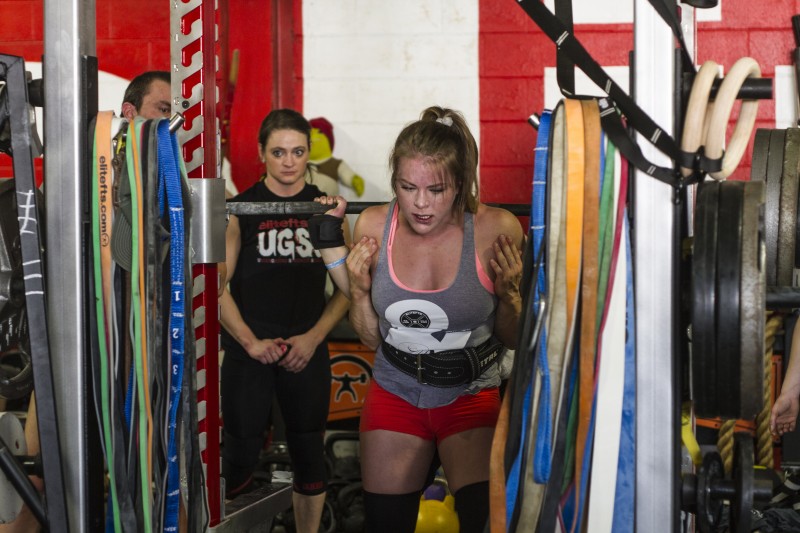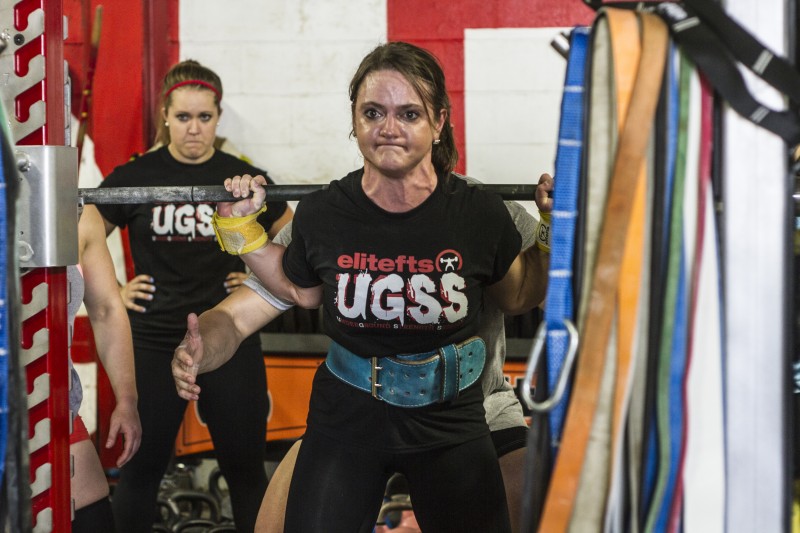
Lately I have been hearing a lot more talk about overtraining and deloading. I think this is a good thing but I am not sure I agree with much of what is being said. Now, I do not have some fancy degree and I don't consider myself any kind of scholar when it comes to strength training. What I do know is my own extensive experience in powerlifting. This includes not only my training but also my experience training members of my team and helping countless other lifters, not to mention all the discussions I have had with numerous top level athletes. I like to call this "blue collar knowledge", and I have plenty of that. From my experience, there is more knowledge from doing it than studying it. So here is my point of view, for whatever it is worth.
What exactly is overtraining? It seems most of the definitions I found are along the lines of the body being stressed or exercised beyond its ability to recover. I don’t like that definition and could not find one definition I liked. Made sense to me to try and make my own, so I did.
Overtraining is when the body is stressed through exercise to the point it no longer makes gains in size or strength over time. Every athlete that trains with intensity pushes their body beyond its ability to recover at every session. Otherwise they would probably keep training all day — I know I would. A good training session can take one to four days to fully recover from. If my body is still recovering before I do my next session, am I overtraining because I am not fully recovered yet? No, I do not consider this overtraining, I consider it training. I think most advanced lifters would agree that we are almost always sore somewhere; we just accept to live like that.
My guess is if we trained one time and not again until we were 100% recovered, we would get nowhere and make no gains. When I say overtraining I am talking about the point where a lifter's recovery is so unbalanced with their training that they are no longer making gains in strength or size over weeks or months. The body needs stress to grow and during regular training the body is always fighting to recover. I do not consider this overtraining, although it meets some of the definitions I read. To me, and for this article, overtraining is only the point where gains stop and/or strength levels actually decrease.
One of the big arguments I keep hearing and completely disagree with is that overtraining is not possible. I have experienced it and I have seen it; it is possible. It is not an easy thing to do and I admit the vast majority of people are not and do not overtrain. The ability to push your body beyond its ability to continuously recover enough is something that takes years of training and a strong mentality. It is rare that a beginner or novice lifter has the ability to do this. I would even say most intermediate lifters do not possess this ability either. This does not mean overtraining is not a real thing though.
The word "deloading" seems to get used a lot during talks of overtraining. I have never really like the term deload. Making the load less than it was? I deload my truck sometimes after I have loaded it up.
It's all training to me, even if it is some kind of recovery training like sled, Prowler, high rep, lighter weight, etc. Why do we need yet another term to say what we are already doing? We are either training or we are not. Good training programs take into account recovery and it is planned in. It is simply part of smart training.
One of the things I find very interesting about the overtraining arguments has to do with who is talking about it and what point of view they tend to have. It appears to me most of the people that think they are overtrained are the lifters that are most probably not overtrained. These are mostly beginner to intermediate lifters. I do not know why they think they are overtraining but I do find it interesting. Maybe it is just that they are not accustomed or do not understand that being a powerlifter means you’re going to be sore and hurt somewhere most of the time.
I am getting asked more and more if I feel my age. My answer is always no; I am a lifter and have woken up feeling sore my whole life. I did not feel any different at 20 than I do at 44. On the flip side of this, I hear a lot of mid to higher level lifters saying there is no such things as overtraining or that they are not overtrained. Some of them actually train intelligently and are not overtrained — this is probably how they made it to top levels. On the other hand, some of them are actually overtrained but are too stubborn to take some time off to realize it's true. My guess is that some of these lifters have become so adapted to feeling beat up that even an extreme level of it feels normal to them. I also think they have become so used to training so often with such intensity that they will not accept the idea that training less or with less intensity will actually make them stronger. They have this mentality of “go as much as you can, as hard as you can. It worked when I started and it will work now.” I find it all very ironic.
The older I get, the more I see that things in life are about balance, and strength training is no different. Very simply put, we need to balance our training with our recovery. If these two things do not match equally, a lifter can end up undertrained or overtrained. Neither of these options are acceptable when the goal is to get as strong as possible as fast as possible. For some reason, between training and recovery, it seems to me that training gets most of the attention. There are copious amounts of information about training but I hear little about recovery. When talking to or watching other lifters, there always seems to be a major focus on training with recovery only being a minor thought. I do understand this and for many, many years of my training I was all about training while rarely even considering recovery.
Maybe this is because there are endless amounts of programs, theories, ideas, and thoughts about training, while recovery is still pretty basic. Yes, there are new ideas and things to try when it comes to recovery, but it just does not compare to the advances in training principles and ideas. I think it is human nature to get wrapped up in the new shiny ideals and kind of forget the basics. This is something lifters need to fight, because no matter how complicated some people try to make strength training, it is still very basic in principle.
I have said it so many times: we break ourselves down in the gym so that we can get stronger when we recover. The greatest programs in the world will not work to their potential without proper recovery.
The point I am trying to make here is that if you think you are overtraining, the first thought you should have is how to improve your recovery. Lifters usually jump straight to thinking about backing off training or deloading. Sometimes this is needed but in most cases it is not. Too many lifters jump too quickly to this conclusion. If in fact you are overtraining, it does not necessarily mean you are training too much; it usually means your recovery is too little.
If you are deloading or backing off when you simply need to increase your active recovery then you are throwing gains out the window. You are basically holding yourself back from increasing your gains and making it take even longer to reach your goals. It is like ignoring half an equation and expecting to still come up with the correct answer in the quickest time frame. Are you actually overtraining or really underrecovering? Read more about this here.
The argument of overtraining is one that I am sure will always be around and I am just as certain it will always aggravate me. Thinking that overtraining cannot happen is wrong. Immediately jumping to the conclusion that you need to back off or deload is also wrong.
Recovery is every bit as important as training and needs to be thought about just as much as training. These two are like yin and yang: they need to be equal make strength training optimal. When setting up a strength training program, this should be one of your top ideals to focus on. So many lifters train as hard as they can but forget to recover as hard as they can too. Intensity of training should match intensity of recovery. If your recovery is being pushed to the extreme and you are still actually overtrained then it may be time to lighten up training or take some time off.













I admit it's even hard for me sometimes because by the time you get home from work there might only be 2-3 hours to have to yourself (which ends up going to home/family matters) before going to bed at 9 for a full nights sleep. It's very tempting to stay up another hour or two and stare at that glaring screen.